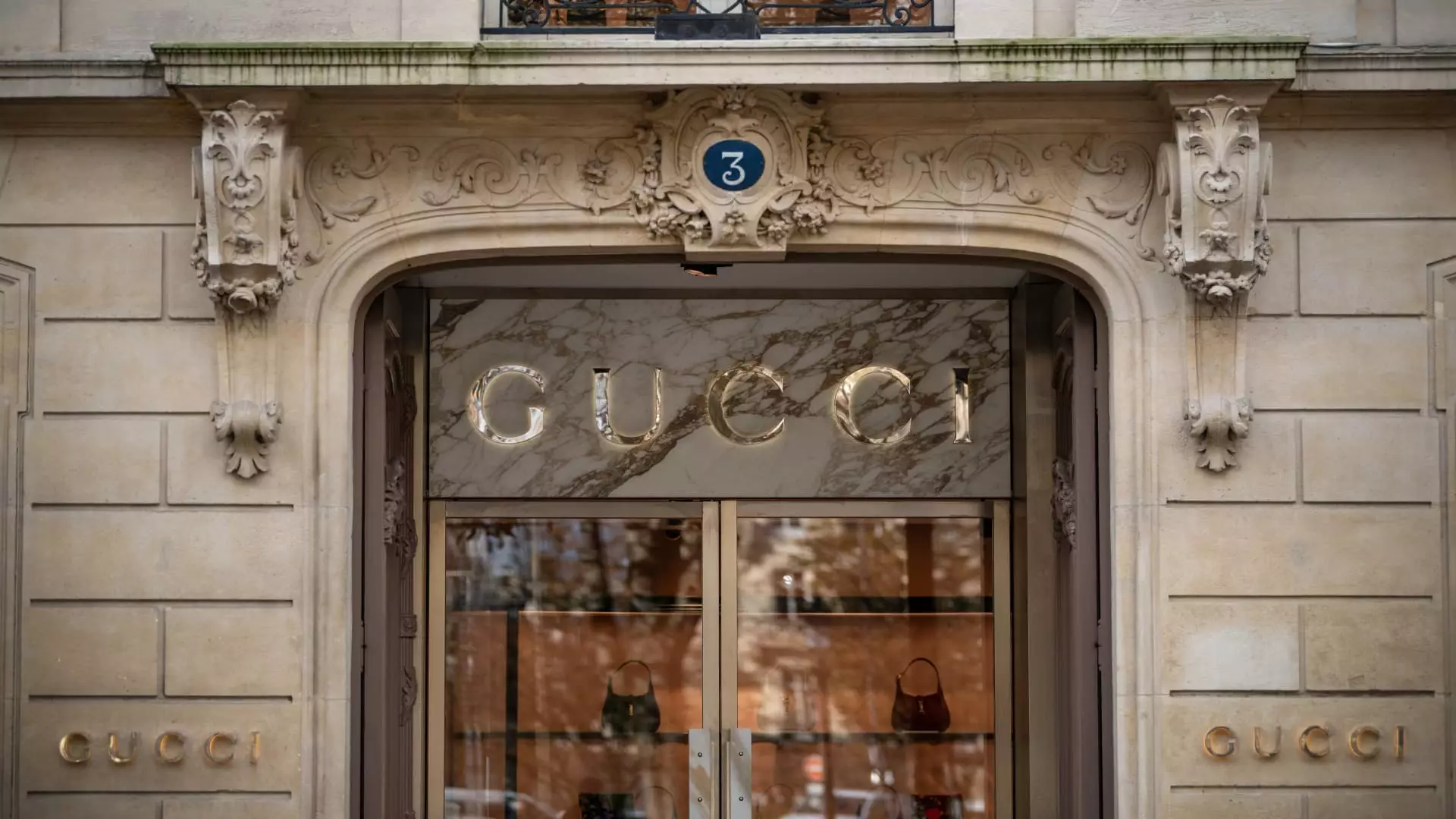Kering, the illustrious French luxury goods powerhouse, found itself in a tumultuous sea of disappointment this past Thursday, as it unveiled disheartening first-quarter sales figures. Revenues nosedived by a staggering 14% year-over-year, landing at a mere 3.9 billion euros (approximately $4.4 billion). Analysts had distinctly more optimistic expectations, forecasting earnings of 4.01 billion euros, thereby exposing a glaring disconnect between reality and anticipation. The company’s flagship brand, Gucci, contributed significantly to this wretched performance with a bewildering 25% drop in sales, reflecting a probable identity crisis that the brand is struggling to overcome. The immediate reaction from the stock market was predictably negative, resulting in a 4.3% plummet in Kering’s share price shortly after the market opened.
Underlying Challenges and Strategic Missteps
A crucible of challenges has beset Kering, particularly in Asia where group sales fell by 25%. This region, which once represented a golden opportunity for the luxury sector, now stands as a testament to changing consumer behavior and macroeconomic adversity. The mounting inflation and subsequent dip in the Chinese market have not just taken a toll on Kering but have also affected other prominent luxury brands like Richemont, LVMH, and Hermès, causing their stock valuations to waver as well.
François-Henri Pinault, Kering’s Chairman and CEO, acknowledged the “difficult start to the year.” Yet, what stands out is not merely the admittance of adversity but rather the relentless optimism with which he clings to hope. Saying they are “fully focused” on executing action plans invokes an image of a captain fervently steering a sinking ship while the crew is uneasy. While strategic recalibrations are vital, one has to wonder if the company’s leadership is fully addressing the root causes of the turmoil.
Gucci’s Yearning for Reinvention
The controversial appointment of Demna Gvasalia as Gucci’s new creative director has stirred a wave of skepticism among investors. Gvasalia’s association with Balenciaga’s 2022 ad campaign, which sparked intense public debate, has led many to question the wisdom behind the move. Gucci, a brand synonymous with luxury, seems to be locked in a struggle between reinventing itself and attempting to reconnect with a customer base that has grown increasingly disenchanted. A record of weak sales, driven by a disconnect with current fashion preferences, adds more fuel to the fire of uncertainty surrounding the brand’s future.
Moreover, Gucci’s substantial reliance on the Chinese market has rendered it particularly vulnerable to broader economic shifts. As consumer sentiment wades into murky waters, the luxury giant’s designs, which previously thrived on high demand, may now face an uphill battle against indifference. What does this say about the branding and marketing philosophies currently in play? This need for reinvention must strike a balance between embracing novelty and adhering to the timeless appeal that luxury brands typically embody.
Market Allure Dims Amid Inflationary Pressures
Kering’s predicament is further illuminated by the broader decline in the luxury market due to mounting inflation and wavering economic conditions. While the industry saw a flicker of hope towards the end of the previous year, stronger fourth-quarter earnings were perceived as signals of emerging recovery. Yet, these glimmers of optimism have been tempered by warnings of a tariff-induced recession clouding the luxury horizon.
Adam Cochrane from Deutsche Bank articulated a stark reality for investors: “Weaker global stock markets and the broader economic uncertainty will weigh on confidence.” If the luxury sector, typically insulated from market fluctuations, is now confronting volatility, then serious questions arise about Kering’s ability to adapt. Brands like LVMH seem more agile, utilizing pricing strategies to navigate the economic storm, while Kering flounders, struggling to offer compelling price adjustments amidst a crisis of confidence.
The Psychological Impact on Customers
Consumer sentiment is indeed a finicky beast. With varying severity, brands like Kering may discover consumers hesitating to indulge in luxury when economic uncertainty looms. The delicate interplay of price elasticity and the willingness of affluent shoppers to absorb cost increases may unveil a psychological barrier that Kering has yet to breach. It’s not just a matter of product quality but also the perceived value that luxury brands should evoke. While Kering attempts to weather the storm, the overarching dilemma may hinge less on financial restructuring and more on rekindling an emotional connection with its clientele.
As Kering navigates these turbulent waters, it’s essential to scrutinize closely how the company will adapt. Because, in a world increasingly obsessed with value over mere branding, Kering’s future may hinge more on authenticity than affluence alone. The question remains: Will the luxury conglomerate manage to fortify its standing in a climate that demands both resilience and relevance?


Leave a Reply